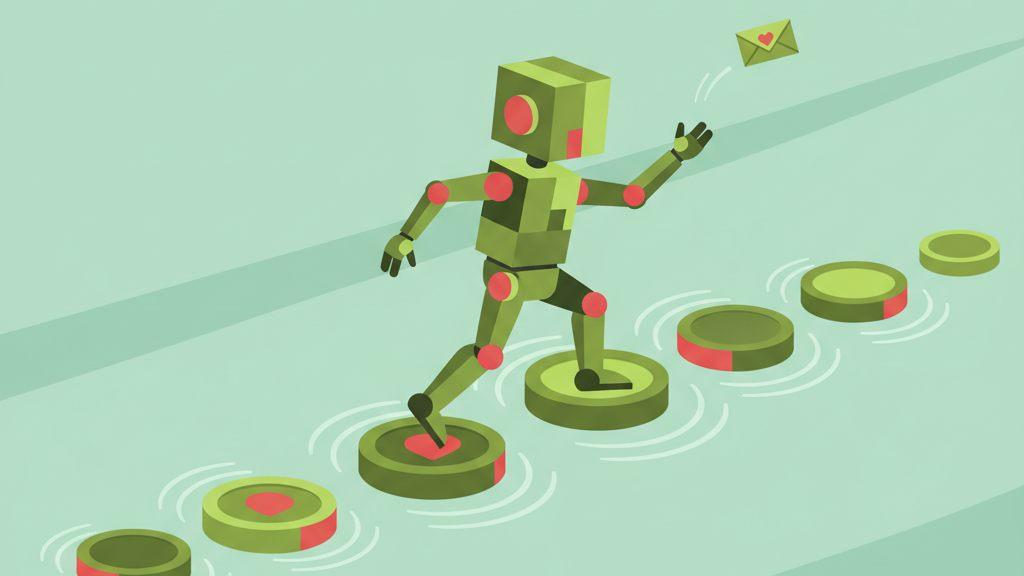Blockchain in Everyday Life: 10 Powerful Blockchain Use Cases That Matter Most

Blockchain in everyday life isn’t just about trading coins anymore. It’s quietly fixing real problems most of us deal with.
Take the numbers: a Coinbase survey in June said that 60% of Fortune 500 companies were working on blockchain projects. According to rwa.xyz, tokenized real-world assets grew 15.7x in over three years, from $1.93B in Jan 2022 to ~$30.34B by Sep 2025. Stablecoins too — jumping from $221.16B at the end of 2024 to ~$285.73B by Sep 2025. That’s billions moving on-chain because it works better than the old system.

The shift is clear: we’re moving from speculation to real-world problems solved by blockchain: faster payments, safer supply chains, even fairer ticketing. And the best part? These aren’t futuristic ideas. They’re already here.
10 Real-World Problems Solved by Blockchain
1. Morning Groceries — No More Counterfeits
You stop by the market for honey and vitamins. Normally, you’d wonder if they’re real. With blockchain in everyday life, you just scan a QR code and instantly see the product’s journey — farm, distributor, shelf. No middlemen tweaking labels, no hidden fakes. It’s one of those real-world problems solved by blockchain that makes daily shopping less about doubt and more about trust.
2. Sending Money Back Home — Cheaper and Faster
Later, you send $200 to your family abroad. On traditional rails, you’d lose a painful cut to fees. In Sub-Saharan Africa, that transfer cost about 60% more than stablecoins in 2024. On-chain, the money arrives in minutes, not days. It’s not just a blockchain use case — it’s a lifeline for millions of workers who need every dollar to count.
3. Apartment Hunting — Protecting Your Deposit
Scrolling listings, you find the perfect place. But you’ve heard horror stories of fake landlords and lost deposits. With a blockchain-based escrow, your money only moves once terms are met. No ghosting, no games. Just a transparent, secure deal you can actually trust.
4. Doctor’s Visit — Your Records on Hand
At the clinic, the doctor asks for past scans. Normally, you’d redo them and pay again. Instead, you open your blockchain health record and share results instantly. Portable, secure, and yours to control. This is one of those blockchain use cases by industry where the benefit feels immediate: better care, lower costs, less hassle.
5. Buying Concert Tickets — No Scalpers Allowed
You finally land tickets to your favorite band. In the old days, you’d worry about counterfeits or inflated resale prices. Now? NFT-based tickets tied to your ID stop fraud cold. Artists can even cap resale markups. Among all the real-world problems solved by blockchain, this one feels personal — no heartbreak on show night.
6. Credit Check — Fairer Access for Everyone
When you apply for a small loan, the bank shrugs. “No history,” they say. But you’ve been paying rent, utilities, even topping up your phone plan. On-chain credit scoring recognizes all of that. It’s a blockchain-based solution that lets everyday people build fairer financial reputations, no matter where they live.
7. Lunch Break — Guarding Your Identity
Logging into your bank app during lunch, you don’t overshare. Your blockchain digital ID only passes the details needed. Less data floating around means fewer hacks. It’s blockchain in everyday life, protecting you from the kind of breaches that make headlines.
8. Freelance Work — No More Ghosted Payments
After work, you wrap up a freelance project. Normally, you’d cross your fingers for payment. Instead, the money sits in a smart contract and releases once the client approves the job. No chasing invoices, no “I’ll pay next week.” Just fair work for fair pay.
9. Evening Savings — Fighting Inflation
Before dinner, you stash some savings. Your local currency is shaky, losing value each month. Stablecoins give you dollar-backed stability without needing a U.S. bank account. It’s one of the most practical blockchain-based solutions out there — not hype, just survival for families facing inflation.
10. Donating Before Bed — Transparency at Last
Before you sleep, you decide to donate to a charity. Normally, you’d wonder where the money really goes. On blockchain, every dollar is traceable. No black box, no vague reports. Even banks have noticed: between 2020 and 2024, they invested over $100B into blockchain across 345 deals (Ripple & CB Insights). Why? Because transparency isn’t just for governments or enterprises — it’s for citizens who want trust.
Conclusion
The truth is, blockchain use cases are already part of daily life. They’re fixing things that actually bug us — slow transfers, fake products, shady rentals, even ticket scams. And that’s what makes it exciting: this tech isn’t just for traders, it’s for all of us.
FAQs
How can blockchain be used in healthcare?
Blockchain improves healthcare by making records safer and easier to share:
- Secure, tamper-proof patient data
- Seamless sharing between clinics
- Automated billing and insurance claims
What problems will you solve with blockchain?
Blockchain tackles everyday issues like cost, fraud, and trust:
- High remittance fees and delays
- Counterfeit goods and scams
- Identity theft risks
- Opaque donations and spending
How are companies using blockchain?
Businesses are adopting blockchain for efficiency and trust:
- Banks invested $100B+ (2020–2024) in 345 deals
- Supply chain tracking for authenticity
- Asset tokenization, including real estate
How blockchain helps supply chain
Supply chains get clearer and safer with blockchain:
- Tracks goods from origin to shelf
- Verifies authenticity to cut fakes
- Automates payments with smart contracts
How can blockchain be used in business?
For businesses, blockchain opens new opportunities:
- Tokenize assets for liquidity
- Automate contracts and payments
- Secure identity and shared data
How will blockchain affect real estate?
Blockchain is reshaping real estate processes:
- Fractional property ownership via tokens
- Smart contracts for leases and escrow
- Tamper-proof registries to fight fraud